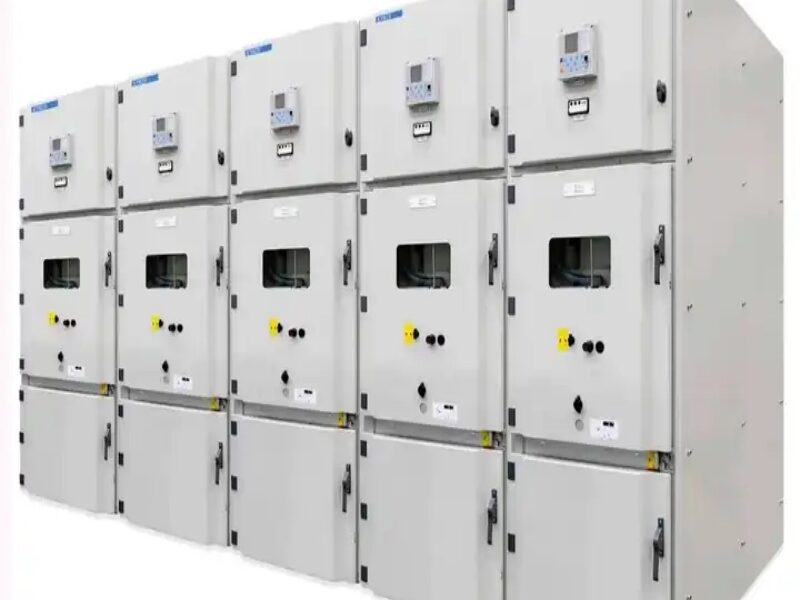
The Role of Ring Main Unit (RMU) in the Power Grid
The Ring Main Unit (RMU) is a pivotal switching device in seco
ndary distribution systems, situated between distribution substations and end consumers. It ensures continuous power supply and isolates faulty sections from the network. It plays a crucial role in modern power grids, not only enhancing reliability but also reducing power outage durations.
I. Basic Composition and Functions of RMU
Essentially, an RMU is a compact switchgear unit fully enclosed within a cabinet, primarily comprising circuit breakers, fuses, and disconnectors. These components work together to achieve the following critical functions:
-
Circuit Control: The RMU can switch circuits from one feeder to another within the loop network, ensuring that loads receive power from alternative feeders in case of a fault on one feeder.
-
Isolation: The RMU can separate faulty sections from the rest of the circuit, preventing fault propagation and safeguarding the entire distribution network.
-
Protection: With protective devices such as circuit breakers, fuses, and grounding switches, the RMU provides overload, short-circuit, or ground fault current protection, ensuring the safe operation of electrical equipment.
II. Types and Characteristics of RMU
Based on the insulating medium used, RMUs can be categorized into three main types: air-insulated, oil-insulated, and gas-insulated. These RMUs can withstand harsh environmental conditions, typically ranging from 10°C to 55°C, with humidity up to 100%.
- Air-Insulated RMU: Uses air as the insulating medium, suitable for distribution systems under general environmental conditions.
- Oil-Insulated RMU: Commonly used in mining and oilfield applications, employing oil as the insulating medium, offering superior insulation and heat dissipation performance.
- Gas-Insulated RMU: Utilizes gases like SF6 as the insulating medium, suitable for medium and low-voltage distribution networks, featuring low maintenance costs, modular design, and pollution resistance.
Recently, solid-insulated RMUs, as an emerging eco-friendly and intelligent power distribution device, have increasingly gained market favor. They use solid insulating materials as the primary insulating medium, characterized by full insulation, full sealing, modularity, and miniaturization, particularly suitable for use in high-altitude, wide temperature difference, polluted, and humid environments.
III. Applications of RMU in the Power Grid
RMUs have a wide range of applications in the power grid, primarily including:
-
Small Distribution Substations: As switching equipment, RMUs transmit power from high-voltage grids to low-voltage grids and distribute it according to different load demands.
-
Small Industrial Facilities: In industrial areas, RMUs provide uninterrupted power to ensure the stable operation of production equipment.
-
Wind and Solar Power Plants: In the field of renewable energy generation, RMUs connect the electricity generated by power generation equipment to the grid and provide necessary protection and control functions.
-
Residential and Commercial Distribution Networks: In residential and commercial areas, RMUs distribute power to individual users, ensuring the reliability and safety of power supply.
-
Underground Cable Distribution Networks: In underground cable distribution systems, RMUs isolate faulty sections and supply loads from alternative feeders, reducing outage durations and impact areas.
IV. Advantages and Challenges of RMU
RMUs offer numerous advantages, such as low maintenance costs, ease of installation and expansion, compact design, and improved power system reliability. However, they also pose some challenges, including higher upfront costs and relatively shorter lifespans. Furthermore, different types of RMUs are suitable for different environments and applications, requiring selection based on actual conditions.
V. Conclusion
As an integral part of modern power grids, the Ring Main Unit (RMU) plays a vital role in enhancing power supply reliability and reducing power outage durations. With continuous technological advancements and market development, the types and functions of RMUs are constantly improving and diversifying. In the future, as smart grid construction progresses, RMUs will play an even more critical role in the power system, providing strong support for building robust, reliable, intelligent, and green power supply networks.
